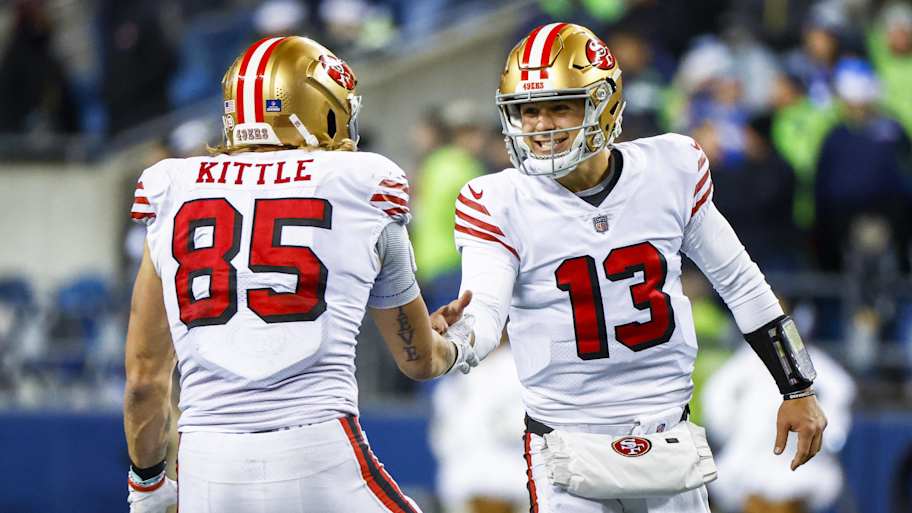Republican bill could make owning a sports team more expensive
Owning a professional sports team in the U.S. could become more expensive if the domestic policy bill that House
Republicans
narrowly passed last week advances through the
Senate
unchanged.
Under the One Big Beautiful Bill Act, which a razor-thin majority of House Republicans passed on Thursday after weeks of internal backlash, future sports team owners would no longer be able to write off the entire value of their team’s “intangible assets,” only half of it.
Why It Matters
During his 2024 campaign, President
Donald Trump
promised various tax cuts, including
no tax on tips for workers
in the service industry and no tax on overtime. Tax cuts are at the heart of the “big, beautiful bill,” which would also extend the president’s 2017 Tax Cuts and Jobs Act.
Critics, including
Republicans
, have expressed concerns over the cost of the bill, saying it would
increase the federal deficit
by trillions of dollars and lead to millions of Americans losing access to health care and other key services.
The bill also includes what is effectively a reduction in the tax break that sports team owners have benefited from for two decades, allowing them to shelter billions of dollars. While the tax break has raised harsh criticism in the past, some are now concerned that the change could discourage new investment in the field.
What To Know
The tax break available to sports team owners was originally passed as part of a sweeping tax legislation in 2004 under President
George W. Bush
.
It allows sports team owners to write off millions of dollars in intangible assets—which include brand recognition, intellectual and media rights, fan loyalty, and sponsorships—over 15 years after purchasing the team. These are often profitable assets, especially for legacy teams.
The tax break is meant to allow owners to write off the cost of the declining value of other tangible assets, such as real estate. However, the value of sports teams’ intangible assets has skyrocketed in recent years.
After a 2021 investigation by ProPublica found that the tax break effectively allowed sports team owners to pay lower taxes than their players, the legislation came under fire but remained in place.
Mark Weinstein, a partner at Hogan Lovells, said the Trump administration initially sought to end the tax break for sports team owners entirely,
Fortune
reported, but House Republicans decided on a 50 percent reduction instead.
If the bill passes the Senate with the reduction in the tax break included, the change will apply only to owners who buy a team after the legislation comes into effect. Current owners, on the other hand, would keep their existing tax break.
What People Are Saying
Helen Drew, a University of Buffalo law professor specializing in sports, told
Fortune
of the tax break reduction
: “It could be a disincentive to buy. But there will always be something to be said about being part of an exclusive country club of, say, 32
NFL
owners—even if certain tax breaks are no longer there. There will always be people wanting to buy.”
Robert Boland, a sports law professor at Seton Hall University, told ESPN
: “Team owners are already pretty good at getting every dollar out of a franchise. I don’t know if they can squeeze much more there, but ultimately, costs that come to owners usually get passed onto fans or consumers in one form or another.”
Steven Bank, a professor of business law at UCLA, told ESPN
: “If the deductions are less, that means they might have to fund more of the team themselves, which means less money for player contracts, less money for amenities in the stadiums, less money to plow into the team, in theory.”
Andrew Appleby, a tax and business law professor at Stetson University, told ESPN
: “I don’t know that that is necessarily a deterrent factor because there is a finite number of professional sports franchises, and those values have grown exponentially because of that scarcity.”
What Happens Next
One team executive who spoke on condition of anonymity told
The
New York Times
that the reduction “felt punitive.” Harrison Fields, a White House spokesperson, said it was about eliminating an advantage for owners at a time when sports events were becoming more expensive for audience members.
“The president is committed to ensuring that sports teams overcharging ticket holders do not receive favorable tax treatment,” Fields said in a statement. “His focus is on fairness for fans, not team ownership.”
The Congressional Joint Committee on Taxation has estimated that reducing the tax break for sports team owners by 50 percent would raise $991 million in revenue over 10 years.
Related Articles






